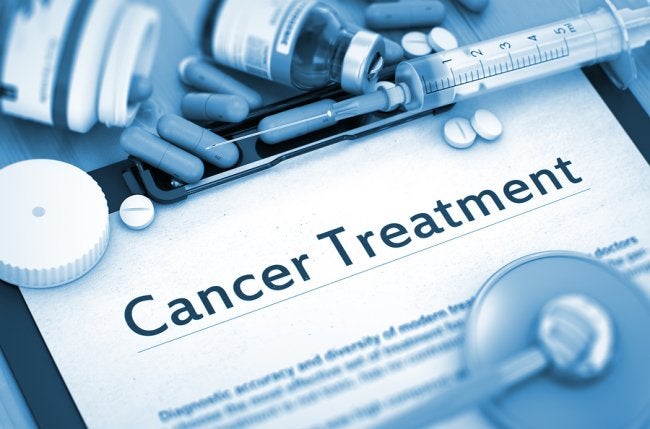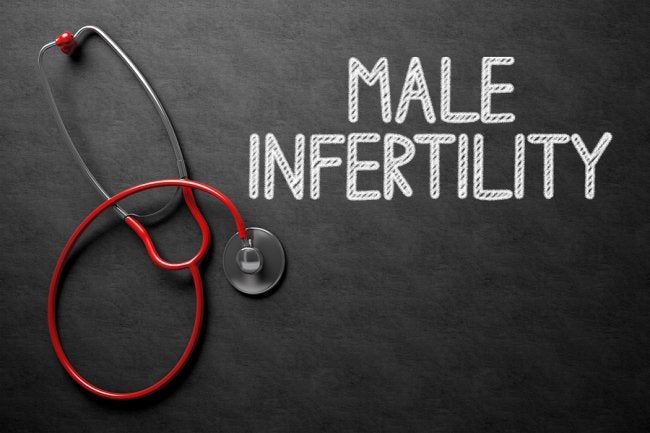-
Don’t Let These Myths Scare You Away from a Clinical Trial

Cancer treatment has come a long way in recent decades. It’s more effective than it used to be, but sometimes, certain cancers just don’t respond the way urologists would like. Some patients may be good candidates for clinical trials if they haven’t responded well to established medical interventions. If your doctor suggests that you consider a clinical trial, you should become fully informed before making a decision. The doctor can help you learn the truth behind the misconceptions about clinical trials.
Myth: Clinical trials are too risky and dangerous.
Every medical treatment has the potential for side effects and complications—whether you’re taking aspirin or undergoing surgery. Do talk to your doctor about the potential risks of the clinical trial you’re considering. However, remember that clinical trials are governed by a strict set of oversight requirements. They’re carefully designed, administered, and monitored so that they can be as safe as possible for the participants.
Myth: Cancer patients may be given faux drugs in clinical trials.
Clinical trials do use placebos, which are pills that do not contain an active ingredient. This is done for the purpose of evaluating the true effectiveness of the treatment. However, placebos aren’t generally used for patients with serious illnesses like cancer. Placebos are never used if their use would place a patient at risk. You may also be reassured to know that you can ask in advance if the clinical trial would involve a placebo.
Myth: If I join a clinical trial, I won’t be able to leave for other treatment.
You have the right to direct your own medical care. Even if you sign up for a clinical trial and begin receiving treatment, you can decide to drop out of the study at any time. The researchers may ask for your permission to continue monitoring you for possible long-term effects.
Urology Associates, P.C. is committed to giving our patients the advanced care they need to fight their diagnosis. Our Advanced Therapeutics Center administers clinical trials for cancer treatment in Tennessee, and many of the medical interventions used have already been FDA-approved. Call (855) 901-1338 to request a consult with our prostate cancer experts.
-
Is Surgery the Only Option for Peyronie’s Disease?

Surgery is still considered the most effective treatment for Peyronie’s disease, which is a condition in which the penis develops a curvature that may become painful. Urologists may recommend a nonsurgical treatment for certain patients. An injected biologic medicine is FDA-approved to treat Peyronie’s disease in men with curvature of at least 30 degrees during an erection. Candidates must also have an observable lump, which is caused by the accumulation of plaque within the penis.
The biologic medicine helps reduce the accumulation of plaque in order to treat the abnormal curvature. Men who receive this treatment can expect to return to the urologist’s office several times. At each appointment, they will receive penile injections. The doctor will perform penile modeling treatments to help stretch the plaque and straighten the penis.
Peyronie’s disease is one of the many sexual dysfunctions we treat here at Urology Associates, P.C. If you’ve been referred to a sexual health specialist in Tennessee, you can call us at (855) 901-1338.
-
Why Do I Have Bloody Urine?

Hematuria is the medical term for bloody urine . It’s always alarming to see blood in your urine, although the underlying cause might not necessarily be too serious. However, you should always see a doctor for an evaluation as you may require medical treatment. Your family physician can refer you to a urologist for medical testing and a comprehensive exam.
Urinary Tract Infection
Urinary tract infections (UTIs) can affect both men and women, although women are at a higher risk. Usually, the urethra or bladder is affected by this bacterial infection. Since the infection is caused by bacteria , a urologist may prescribe antibiotics. In addition to blood in the urine, a UTI can cause pelvic pain or pressure, persistent urges to urinate, and the frequent passing of small amounts of urine.
Kidney Infection
UTIs aren’t always limited to the urethra or bladder. If the bacteria infect the kidneys, the consequences can be serious. Unless you seek prompt medical care for a kidney infection, it’s possible to sustain permanent kidney damage or sepsis. A kidney infection can cause the same symptoms as a UTI, but it will also cause fever, chills, nausea, or vomiting. Pain can develop in the back, side, or abdomen.
Kidney or Bladder Stones
Urine contains minerals. Over time, these minerals can crystalize on the kidney or bladder walls. The crystals can then gradually form either kidney or bladder stones, which are hardened deposits. Patients often don’t experience symptoms like pain and bloody urine unless the stones start to shift around or cause a blockage. When this happens, the pain can be excruciating.
Cancer
There’s a possibility that blood in the urine can indicate cancer of the prostate, kidneys, or bladder. Symptoms of these cancers may not appear until the disease is already at an advanced stage. If the urologist has ruled out all other possibilities of bloody urine, he or she may request some tests to check for cancer.
When you’re experiencing troubling symptoms, you need to know that your health is in good hands. Come in and talk with the specialists at Urology Associates, P.C. You can schedule an appointment with a urologist in Tennessee by calling (855) 901-1338.
-
Prostate Cancer 101
Prostate cancer is one of the most common types. Fortunately, most men diagnosed with it have slow-growing tumors. There are several cancer treatments available. Your urologist will develop a personalized treatment plan, depending on the exact type of prostate cancer, and the man’s age and general health.
You can hear more about cancer treatment when you watch this interview with Dr. Charles Eckstein. He’s a urologist at Urology Associates, P.C. In this video, Dr. Eckstein covers the diagnostics, staging, and treatment planning processes. Some of these treatments include internal and external radiation therapy, and open or minimally invasive surgery.
Urology Associates, P.C. is committed to providing an exceptional level of care for men diagnosed with prostate cancer in Tennessee. You can call (855) 901-1338 to request a consult.
-
Clinical Trials for Cancer: A Patient’s Guide to Making the Decision

Cancer treatment for kidney, bladder, and prostate cancers can be effective when the disease is diagnosed in the early stages. As the cancer cells multiply and spread beyond the point of origin, eliminating the cancer becomes increasingly difficult. Sometimes, patients with advanced cancer have already gone through surgery, and multiple rounds of chemotherapy and radiation therapy, only to discover that they still have cancer and they are out of treatment options. As distressing as this is, there may be still be hope. A clinical trial gives patients another chance to become cancer-free.
Possible Benefits of Clinical Trials
A clinical trial tests emerging treatments that aren’t yet available to non-participants. Although there are no guarantees in medicine, it’s possible that this new treatment will help patients live longer . Even if the treatment doesn’t work, some patients take heart in the fact that they’ve contributed to cancer research, and that others may benefit from their contribution.
Potential Risks of Clinical Trials
The main risk with a clinical trial is that it won’t help. It’s also possible for the emerging cancer treatment to cause mild to severe side effects that may reduce quality of life. Patients will likely need more visits to the urologist’s office, and these will subtract from the patients’ remaining time with his or her family.
Common Eligibility Criteria for Clinical Trials
Not everyone is eligible to join a clinical trial. The right set of circumstances has to exist. First, there must be a clinical trial available that involves a potential treatment for that particular type of cancer. That trial must still be accepting new study participants. Next, the patient must meet the specific eligibility criteria for that clinical trial. Some of the most common criteria are:
- Being within a certain age range
- Being diagnosed with a specific type and stage of cancer
- Having a certain medical history
- Demonstrating a specific health status
At Urology Associates, P.C., our Advanced Therapeutics Center is committed to saving lives with cutting-edge therapies, including those offered in clinical trials. Here, you’ll receive in-depth, personalized guidance on the cancer treatments available in Tennessee. Call (855) 901-1338 for an appointment to discuss whether a clinical trial may be the right choice for you.
-
Our Advanced Therapeutics Center: What to Expect

Focused on delivering high-quality care using the latest therapies and technology, our Advanced Therapeutic Center at Urology Associates, P.C. offers treatment that compliments the medicine provided by your care team for various conditions. Here, we work as a specialized unit of care providers and physicians to administer newer and more complex treatments to our patients.
In some cases, when the disease progresses despite standard cancer treatment, the team at our Advanced Therapeutics Center can offer clinical trials as an option for eligible patients. Besides cancer therapies for advanced disease, we manage and monitor the side effects that can be brought on by agents used in clinical trials to help minimize their impact on put patients’ quality of life. Finally, we offer mobile specialty clinics that focus on bone health and men’s health.
Would you like to discover more about our Advanced Therapeutics Center services or options for prostate and testicular cancer treatment in Nashville ? If so, then please contact Urology Associates, P.C. by calling (855) 901-1338.
-
What Women Should Know About Urinary Tract Infections

Urinary tract infections (UTIs) are caused by bacteria that can proliferate in the bladder, urethra, ureters, or kidneys. In most cases, UTIs affect the urethra and bladder. Since women are much more likely to develop UTIs than men, it’s helpful to learn how to detect the signs and symptoms, and to know when to see a urologist.
Causes and Risk Factors
A UTI can develop when bacteria enter the urethra and spread to the bladder. Cystitis is the infection of the bladder, and urethritis is the infection of the urethra. In addition to having female anatomy, other risk factors of UTIs include:
- Being sexually active
- Having a new sexual partner
- Going through menopause
- Using diaphragms or spermicidal agents for birth control
- Having kidney stones
- Using a urinary catheter
- Having a suppressed immune system
- Having a recent pelvic surgery
Patients should note that, although most UTIs affect women, it is still possible for men to develop these infections—particularly if they need to use a urinary catheter.
Signs and Symptoms
Urinary tract infections generally make themselves known by causing a painful, burning sensation during urination . Women sometimes report suffering from pelvic pain, and urinating frequently, but in small amounts. In some cases, the urine may look reddish or pinkish, which indicates the presence of blood. If the UTI involves the kidneys, women should seek emergency care, as permanent kidney damage or even death can result from an untreated kidney infection. Kidney infections can cause:
- High fever
- Shaking and chills
- Nausea and vomiting
- Pain of the side and back
Treatment and Prevention
Antibiotics are the primary UTI treatment, although some women might also be prescribed a medicine to control the pain during urination. Severe UTIs, such as those that involve the kidneys, might require hospitalization and intravenous antibiotics. Women who suffer from recurrent UTIs can consult a urologist to discuss a preventive approach, which may include the following:
- Wiping from front to back
- Urinating shortly after sex
- Drinking plenty of water
- Avoiding feminine products that irritate the area
Urinary tract infections can be painful, but you can find the rapid relief you need at Urology Associates, P.C. In addition to UTI treatment at our locations throughout Tennessee, our dedicated, courteous team provides comprehensive sexual health evaluations and treatments. Call (855) 901-1338.
-
A Look at the Use of HIFU for Prostate Cancer Treatment
High-intensity focal ultrasound (HIFU) is an emerging treatment for prostate cancer. As the name suggests, it involves directing high-frequency sound waves at the tumor. The sound waves generate heat, which destroys the cancer cells. You can learn more about HIFU by watching this featured interview with a urologist at Urology Associates, P.C.
Dr. Robert Barnett explains the basics of how HIFU works to treat prostate cancer. Clinical research demonstrates the safety and effectiveness of this treatment and it is currently available at the Urology Surgery Center. Only a select group of urologists perform this procedure, and includes Dr. J. Matthew Hassan , and Dr. Charles Eckstein .
The compassionate doctors and support staff at Urology Associates, P.C. go the extra mile to connect our patients in Nashville with prostate cancer treatments that are right for them. Contact us at (855) 901-1338 with your questions about our urology services.
-
Spotlight on Prostatic Intraepithelial Neoplasia

After visiting a urologist for a prostate biopsy, some men receive a pathology report that mentions the presence of prostatic intraepithelial neoplasia (PIN). Continue reading for more information about PIN in prostate cells and to learn about the basics of this diagnosis.
Overview
PIN refers to abnormal cells that are taken during a prostate biopsy, and it can be best described as a precancerous condition. If your pathology report mentions that PIN was found, then this means that changes were seen in the appearance of the prostate cells. However, these abnormal cells do not look as if they are growing into other areas of the prostate like cancer cells would.
Types
If PIN is detected in the cells taken during your prostate biopsy, then it will be classified as either low-grade or high-grade. Low-grade PIN means that the patterns of the prostate cells appear nearly normal. The presence of high-grade PIN indicates that the prostate cells appeared more abnormal.
Occurrence
PIN can begin to show up in prostate cells of men that are in their 20s. Also, it’s not unusual for men to develop low-grade PIN at a young age that does not progress to prostate cancer. In fact, it’s unclear to urologists exactly what link there is between low-grade PIN and prostate cancer. On the other hand, if high-grade PIN is detected in your prostate cells, then the chance that there is cancer in another area of your prostate is about 20%.
Follow-Up
If PIN is detected in your biopsy, then speak with your urologist about what steps to take next. For most patients, even high-grade PIN does not progress to prostate cancer. For this reason, there may be no steps for you to take before your next regular biopsy. If you’re a patient with a higher risk of prostate cancer, then your urologist may recommend a repeat biopsy.
Are you looking for a compassionate and experienced urologist in Nashville? If so, then please come and see us at Urology Associates, P.C. Call (855) 901-1338 for information about our services or to schedule your appointment.
-
What Are the Risk Factors for Male Infertility?

Concerns about sexual health and infertility are more common among men than you might think. Consider talking to a urologist if you and your partner have been trying to get pregnant without success. The doctor may assess your risk factors of male infertility, which can include underlying medical problems such as sickle cell disease, tumors, and obesity. Men are also at a higher risk of infertility if they have a history of undescended testicles, testicular trauma, major pelvic or abdominal surgery, or long-term exposure to environmental toxins.
Sometimes, treatments for medical conditions can affect a man’s fertility. Let your doctor know about all of the medicines you’re taking, and whether you’ve previously had cancer treatments. Expect the urologist to ask you some questions about your lifestyle. The use of tobacco, alcohol, and some illicit substances can increase the risk of infertility.
Men in Nashville can find male infertility treatments that are effective and safe at Urology Associates, P.C. Call (855) 901-1338 to request an appointment with one of our urology specialists.
Recent Posts
categories
- Uncategorized
- Bladder Cancer
- Women's Sexual Health
- MonaLisa Touch
- Urology
- Urologist
- Erectile Dysfunction
- Kidney Cancer
- Incontinence
- Prostate
- MonaLisa Touch Laser Treatment
- Kidney Stones
- Urinary Tract Infections
- Event
- Sexual Dysfunction
- Testicular Cancer
- Prostate Cancer
- Urology Surgery Center
- urinary incontinence
- vaginismus
- noncoital pain disorder
- Hypoactive Sexual Desire Disorder
- Infographic
- provenge
- Xofigo
- robotic surgery
- hormone replacement
- diabetes
- renal cell carcinoma
- pelvic pain
- hematuria
- sexual health
- chronic testicular pain
- premature ejaculation
- Men's Health Clinic
- Dr. Melvin Seard
- Interstitial Cystitis
- vasectomy
- overactive bladder
- vaginal atrophy
- nocturia
- bladder infections
- urethral strictures
- Acute Epididymitis
- low sex drive
- circumcision
- pelvic floor dysfunction
- Peyronie's Disease
- prostatitis
- female sexual dysfunction
- varicocele
- difficult urination
- low libido
- PSA levels
- male fertility
- penile prosthesis
- prostatic intraepithelial neoplasia
- male infertility
- estrogen levels
- nurse navigator
- stress urinary incontinence
- vaginal yeast infection
- elevated psa
- painful sex
- adult circumcision
- epididymitis
- OAB
- kidney infection
- penile cancer
- pelvic organ prolapse
- Vasectomy Reversal
- bone health
- cystectomies
- clinical trials
- bloody urine
- Advanced Therapeutic Center
- WISH MedSpa
- neurogenic bladder
- WISH Team
- prostate biopsies
- BPH
- fecal incontinence
- lithotripsy
- osteoporosis
- kidney cysts
